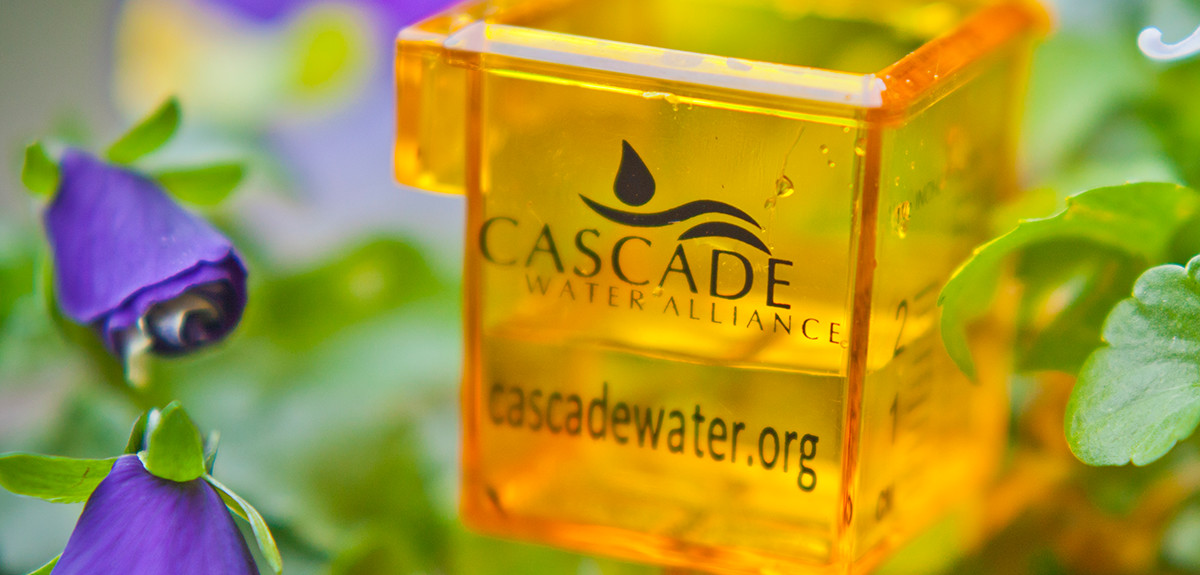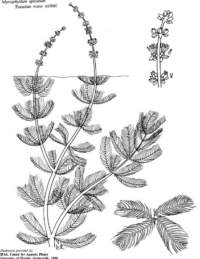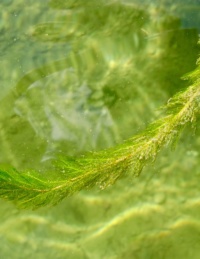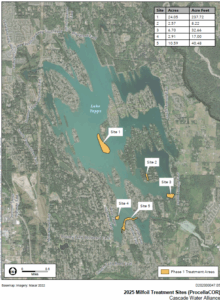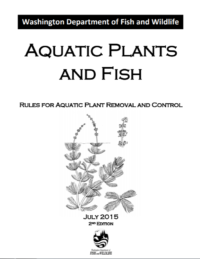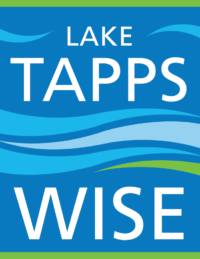Cascade operates Lake Tapps for eventual municipal water supply for its members, but works diligently to keep it clean and healthy today. That includes addressing milfoil and other invasive species. Milfoil is a non-regulated weed in Pierce County and Cascade has no regulatory obligations to control it in Lake Tapps. However, Cascade will continue to manage milfoil. Cascade does not remove native, aquatic plant species. To download an info sheet on milfoil, click here.
What is milfoil?
Eurasian milfoil (Myriophyllum spicatum) is a non-native, invasive aquatic plant. The leaves of milfoil are submerged, and grow in whorls of four, with many thread-like leaflets. This plant can grow from broken-off stems and can spread quickly, creating dense mats that may crowd out native plants and inhibit recreational activity in the water.
What is Cascade doing about milfoil?
Lake Tapps reservoir is assessed annually to determine areas in greatest need of treatment. Since 2010, Cascade has managed milfoil growth in the Lake Tapps Reservoir, and has spent over $2.2 million to date on milfoil treatment.
Chemical Treatment: Cascade has primarily managed milfoil growth with chemical treatments, and has used the herbicide ProcellaCOR® for treatment since 2019. ProcellaCOR® has a better environmental profile and is more effective than other herbicides.
2025 Milfoil Treatment Plan: Phase 1 of Cascade’s treatment of herbicide ProcellaCOR® treatment is anticipated occur the week of June 23. For the full press release for Phase 1 treatment, click here. A map of these treatment areas is below. Residents in planned treatment areas will be notified regarding exact dates of treatment prior to actual application.
TappsWise Program: Since nutrients from lawns and septic tanks can increase aquatic vegetation, Cascade partners with Tacoma-Pierce County Department of Health on the TappsWise program, to promote natural yard care and septic maintenance to keep Lake Tapps clean and healthy.
Bottom Barrier and Dry Land Herbicide Pilot Studies: Cascade conducted two pilot studies in 2018-19 on controlling milfoil with bottom barriers and dry-land herbicide treatments. Neither option was effective in controlling milfoil after the first year.
Research: Cascade worked with Montana State University to sample milfoil in Lake Tapps Reservoir to identify the various strains in the reservoir and growth of these different strains over time, to determine the most effective herbicide.
Homeowner Options to Manage Milfoil
Homeowner/HOA Option to Pay for Chemical Treatment: As the owner of the reservoir and the lake bed up to 545 feet elevation, Cascade is the only entity that is permitted by the Washington Department of Ecology to apply herbicides in the water, and Cascade’s applicator (Aquatechnex) applies an herbicide called ProcellaCOR® twice each summer. Although Cascade is able to treat the most heavily concentrated areas in the reservoir, it doesn’t have the funds to treat all impacted areas, such as small patches that affect a limited number of homeowners. To address these needs, and per the request of some Lake Tapps homeowners, Cascade allows homeowner associations (HOAs) and individual homeowners, at their own expense, to use Cascade’s permit and contract directly with Aquatechnex to chemically treat milfoil in front of their residences. Treatment will be limited to milfoil and will not include other non-native or native plants, and must occur the same days as Cascade’s planned Phase 1 or 2 treatments. If you’re interested in this program, please reach out to panderson@cascadewater.org with photos of the milfoil, your address, and dock number.
Hand Removal of Aquatic Plants: Hand removal of aquatic plants can help manage growth and can be effective for small, confined areas. Remove the entire plant when possible – milfoil can re-grow from pieces floating in the water – and dispose it at an upland site where it cannot re-enter the water. If waterfront property owners plan to remove aquatic plants from in front of their property, they must follow rules outlined in Washington Department of Fish and Wildlife’s Aquatic Plants and Fish: Rules for Aquatic Plant Removal and Control.
Bottom Barriers: Bottom barriers are synthetic or natural fiber material used to cover and kill plants growing on the lake bottom, anchored with sandbags or rocks. Bottom barriers are best used in small, confined areas where control of all plants is needed, and where they can be maintained and replaced often. For more information on bottom barriers click here and also see the Rules for Aquatic Plant Removal and Control.
Reduction or Elimination of Excess Nutrients: Nutrients from lawns and septic tanks can increase vegetation in the reservoir, so reducing fertilizer applications and keeping septic tanks maintained and working properly will reduce aquatic plant growth. Residents are encouraged to participate in the TappsWise program to help keep Lake Tapps clean and healthy.
